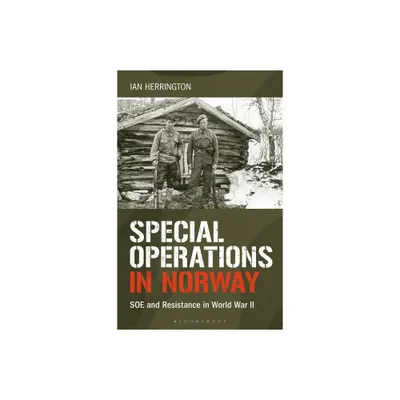Home
the Global Infrastructure of Special Operations Executive
Loading Inventory...
Barnes and Noble
the Global Infrastructure of Special Operations Executive
Current price: $180.00


Barnes and Noble
the Global Infrastructure of Special Operations Executive
Current price: $180.00
Loading Inventory...
Size: Hardcover
*Product Information may vary - to confirm product availability, pricing, and additional information please contact Barnes and Noble
During the Second World War, the British government established the Special Operations Executive (SOE) for the purpose of coordinating ‘all action, by way of subversion and sabotage, against the enemy overseas’. Although the overseas operations of this branch of the British Secret Services are relatively well known, few studies have explored the ‘backroom sections’ of this organisation. This book draws together the infrastructure developed to support an agent’s ‘journey’ from recruitment to despatch to the field.
At the start of the Second World War there were few existing facilities established within the UK to support clandestine operations. As the conflict progressed, in parallel to learning the operational procedures of their trade, SOE also had to rapidly expand their support infrastructure around the world. The organisation could effectively support their agents only by establishing facilities dedicated to training, research and development, supply, transportation, communication, and command and control. By predominately focusing on the organisation’s ‘agent facing’ infrastructure, this book provides a backdrop to the brave men and women who conducted operations abroad. In addition, it gives an overview of the facilities in which SOE’s backroom staff lived and worked.
The book will be of interest to students and scholars of archaeology, history and war studies.
At the start of the Second World War there were few existing facilities established within the UK to support clandestine operations. As the conflict progressed, in parallel to learning the operational procedures of their trade, SOE also had to rapidly expand their support infrastructure around the world. The organisation could effectively support their agents only by establishing facilities dedicated to training, research and development, supply, transportation, communication, and command and control. By predominately focusing on the organisation’s ‘agent facing’ infrastructure, this book provides a backdrop to the brave men and women who conducted operations abroad. In addition, it gives an overview of the facilities in which SOE’s backroom staff lived and worked.
The book will be of interest to students and scholars of archaeology, history and war studies.


















